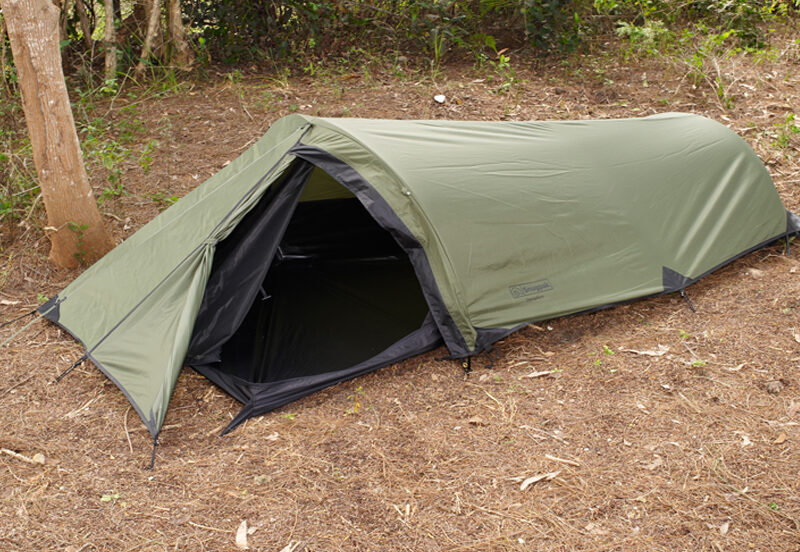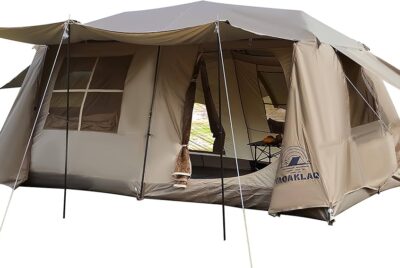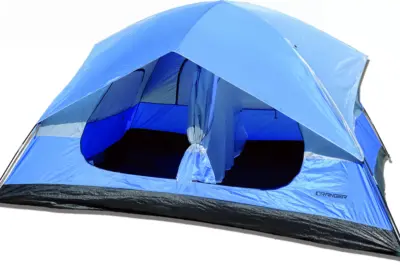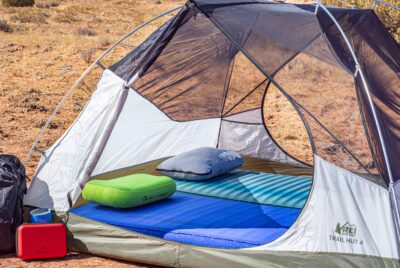Guide to the 1 Person Camping Tent
Introduction
Are you a solo explorer ready to embark on thrilling outdoor adventures? Camping solo offers a unique opportunity for self-discovery, tranquility, and immersion in nature like never before. But before you hit the trails, you’ll need to ensure you have the right shelter to keep you comfortable and secure during your solitary escapades. That’s where 1 person camping tents come into play! In this comprehensive guide, we’ll delve into everything you need to know about choosing the perfect 1 person tent for your solo camping endeavors. From different types and features to tips for maximizing your outdoor experience, let’s dive in!
Understanding the 1 Person Camping Tent: Lightweight, Compact, and Solo-Friendly
1 person camping tents, also known as solo tents or backpacking tents, are specifically designed to accommodate solo campers seeking adventure off the beaten path. These tents prioritize portability, weight savings, and ease of setup, making them an ideal choice for solo backpacking trips, thru-hikes, or minimalist camping excursions.
Types of 1 Person Tents: Finding the Perfect Fit for Your Adventure Style
Ultralight Tents: If you’re counting ounces and prioritizing minimalism on your solo adventures, ultralight 1 person tents are the way to go. These tents are constructed from lightweight materials like silnylon or Dyneema composite fabric (DCF), offering maximum weight savings without sacrificing durability or weather protection.
Freestanding Tents: Freestanding 1 person tents feature a self-supporting design, meaning they can stand upright without the need for stakes or guy lines. This makes them easy to pitch on various terrain types, including rocky or hard-packed ground, and provides added convenience for solo campers.
Trekking Pole Tents: Designed to utilize trekking poles for support, trekking pole tents offer a lightweight and packable shelter solution for solo adventurers. By repurposing your trekking poles as tent poles, you can reduce the weight of your pack and enjoy a minimalist camping experience without compromising on stability or comfort.
Key Features to Consider: Weather Protection, Ventilation, and Livability
Weather Resistance: When camping solo, it’s essential to choose a tent that can withstand the elements and keep you dry and comfortable in any weather conditions. Look for tents with waterproof materials, taped seams, and a full-coverage rainfly to provide reliable protection against rain, wind, and inclement weather.
Ventilation: Proper airflow is crucial for preventing condensation buildup inside your tent and maintaining a comfortable sleeping environment. Seek out tents with mesh panels, adjustable vents, and strategic airflow design to promote ventilation and airflow without compromising weather protection.
Livability: While solo camping tents are designed for one person, factors like interior space, headroom, and storage options can significantly impact your comfort and enjoyment during your outdoor adventures. Look for tents with thoughtful design features, such as interior pockets, gear lofts, and vestibules, to enhance livability and organization inside the tent.
Choosing the Right Size: Finding Your Solo Sanctuary
When selecting a 1 person camping tent, size matters more than you might think. Consider the following factors to ensure your tent provides adequate space and comfort for your solo camping adventures:
Interior Space: Look for tents with sufficient floor space to accommodate your sleeping pad or air mattress comfortably, along with space for storing gear and personal belongings.
Peak Height: Consider the tent’s peak height to ensure you have enough headroom to sit up comfortably inside the tent and move around without feeling cramped or confined.
Packability: Pay attention to the tent’s packed size and weight, especially if you’ll be carrying it in a backpack or hiking long distances to your campsite. Opt for a tent that strikes the right balance between weight savings and livability for your needs.
Where to Find the Best Deals: Tips for Budget-Friendly Solo Camping Tents
Solo camping tents come in a range of prices to suit different budgets and preferences. Here are some tips for finding the best deals on 1 person tents without compromising on quality:
Shop Off-Season: Retailers often discount camping gear during the off-season, such as late fall and winter. Take advantage of these sales to snag a high-quality tent at a fraction of the cost.
Check Online Retailers: Online marketplaces like Amazon, REI, and Backcountry frequently offer competitive prices on camping tents, along with a wide selection to choose from. Keep an eye out for flash sales, discounts, and clearance deals to maximize your savings.
Consider Used Options: Don’t overlook the possibility of finding a gently used tent at a significant discount through online marketplaces like eBay or local buy/sell/trade groups. Just be sure to inspect the tent thoroughly for any signs of damage or wear before making a purchase.
Tips for Solo Camping Success: Safety, Comfort, and Enjoyment
Solo camping offers a unique opportunity for self-reliance, solitude, and exploration in the great outdoors. Here are some tips to help you make the most of your solo camping adventures:
Safety First: Before heading out on your solo camping trip, make sure to inform someone you trust of your itinerary, including your planned route, campsite location, and expected return date. Carry essential safety gear, such as a first aid kit, navigation tools, and emergency communication devices, and familiarize yourself with basic wilderness survival skills.
Pack Light, Pack Right: When camping solo, every ounce counts. Prioritize lightweight and multi-functional gear to minimize your pack weight while maximizing comfort and functionality. Pack essentials like food, water, shelter, clothing, and navigation tools, and leave unnecessary items at home to streamline your pack.
Embrace Solitude: Solo camping provides an opportunity for introspection, solitude, and connection with nature like no other. Embrace the silence, savor the solitude, and take time to appreciate the beauty and tranquility of your surroundings.
Practice Leave No Trace: Leave No Trace principles are essential for minimizing your impact on the environment and preserving natural spaces for future generations to enjoy. Pack out all trash, minimize campfire impacts, and respect wildlife and vegetation during your solo camping adventures.
Conclusion: Solo Camping, Unlimited Adventure
Embarking on a solo camping adventure is a thrilling opportunity to immerse yourself in nature, challenge yourself, and discover new horizons. With the right 1 person camping tent as your trusty companion, you’re ready to embark on unforgettable outdoor experiences, forge a deeper connection with the natural world, and create lasting memories that will stay with you long after the journey ends. So, pack your bags, lace up your boots, and venture into the wilderness with confidence, knowing that your solo sanctuary awaits under the starry skies. Happy camping, solo explorer!




